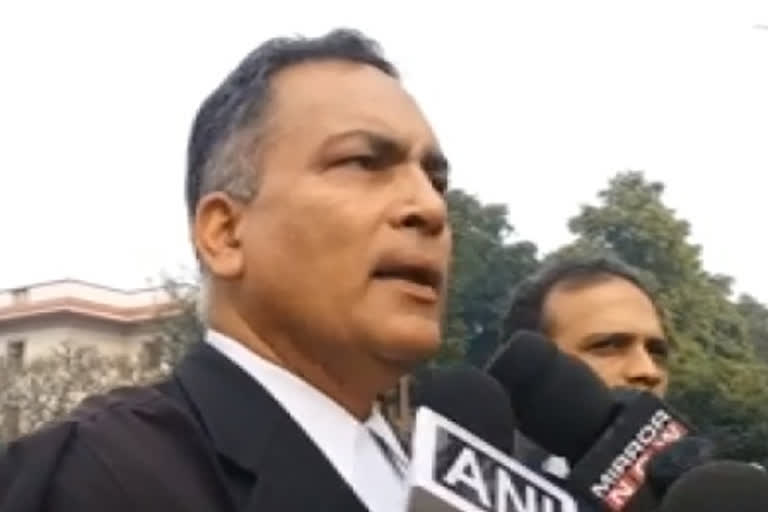New Delhi: Advocate A.P. Singh, the lawyer for three of the four death row convicts in the Nirbhaya gang-rape case again moved an application before a Delhi court seeking directions to the Tihar Jail authorities to supply him the relevant documents in order to exercise the remaining legal remedies available with the convicts -- Vinay, Pawan and Akshay.
Singh, in his plea filed before the Patiala House Court, sought urgent orders of the court in order to file a mercy petition of Vinay Sharma and in relation to requests for documents for convicts Vinay Sharma, Pawan Kumar Gupta and Akshay Kumar Singh.
He further said that the convicts undertook several steps to obtain relevant information necessary for filing the mercy petitions. In the regular interval, the convicts requested the concerned authority to supply documents pertaining to their medical records from 2012 to 2015 and 2019-2020, records of cellular confinement, records of the amount earned in prison through labour, records of educational and reformative activities like Tihar Olympics and Painting, etc.
"Despite multiple requests, the documents pertaining to convict Vinay Sharma had not been provided and further similar documents should be directed to be provided for convicts Pawan Gupta and Akshay Thakur from the superintendents of the respective jails," the application said.
Also Read: They are using delay tactics to avoid execution, says Nirbhaya's lawyer
The court had recently issued a death warrant against the convicts and fixed February 1 as the date of execution of the death penalty.
The 23-year-old victim was brutally gang-raped and tortured on December 16, 2012, which later led to her death. All the six accused were arrested and charged with sexual assault and murder. One of the accused was a minor and appeared before a juvenile justice court, while another accused committed suicide in Tihar Jail.
Four of the convicts were sentenced to death by a trial court in September 2013, and the verdict was confirmed by the Delhi High Court in March 2014 and subsequently upheld by the Supreme Court in May 2017, which also dismissed their review petitions.
A Juvenile involved in the crime was convicted by a juvenile justice board and released from a reformation home after serving a three-year term.



